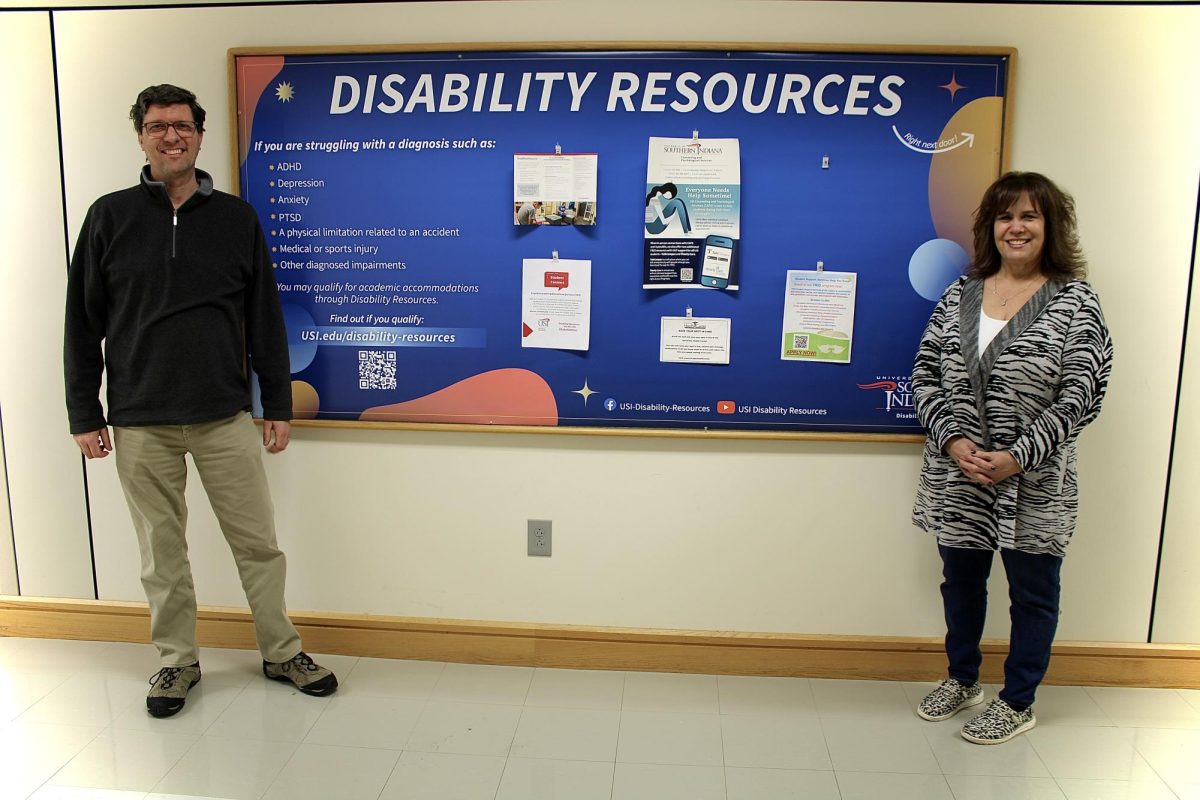Disability Resources is a service on campus that provides assistance to students with disabilities, including those with various diagnoses and physical limitations, anxiety, depression and/or PTSD. Disability Resources also offers temporary accommodations to students dealing with concussions, recovery from surgeries or sustained injuries. This campus resource provides specific accommodations like accessible learning materials, exam modifications, assistive technologies and guidance on obtaining psychological testing and connecting with both internal and external support.
“Some students may hear the term ‘disability’ and not realize it could pertain to them,” said Michelle Kirk, manager of Disability Resources. “We actively encourage students to engage in a conversation with us to explore whether they might be eligible for accommodations rather than making assumptions that they aren’t. We are more than willing to discuss their concerns and assess whether they qualify for assistance. The invitation is extended to anyone seeking information.”
“If a student received accommodations during their K-12 education, we can use their IEP or 504 plan as guidance; however, we will still need the verification form signed by a medical professional, which we would need to approve their accommodation request. This form can be found on our webpage.”
There are two other people on staff at the Disability Resources office: Michele Barnett, senior administrative assistant, and Keith Scheller, Disability Resources coordinator. Individuals on staff receive training to have the ability to approve accommodations for students. This training includes professional development training several times each year, which involves in-person and virtual sessions. They also remain connected and engaged in campus-wide activities like tabling events and organizing activities and events that are aimed at offering support and resources to students.
The Disability Resources staff works individually with students first to understand what documentation they need, like conducting intake appointments with students for academic accommodations and emotional support animal requests through housing.
“The office empowers students to navigate their academic journeys more effectively,” Kirk said.
Kirk said Disability Resources has had significant positive impacts on USI and its students.
“The office empowers students to navigate their academic journeys more effectively,” Kirk said. “This office serves as a crucial support system, ensuring that students with disabilities have equitable access to educational opportunities and content.”
Kirk has experienced several instances where students are unsure of what direction to go and what supports are available.
“Sitting down and making them feel like they’re being listened to, they’re being supported and we’re doing everything we can to help them determine what’s going to provide the best academic support they can have, they realize they have options and recognize they need to utilize the tools that are available to them,” Kirk said. “They’re very appreciative of the fact they’re able to come and get that guidance, that support and that level of assistance.”
Another impact this campus resource has had on USI is its promotion of inclusivity and diversity. Disability Resources “fosters a culture of understanding and acceptance, promoting awareness of the varied needs within the student body,” Kirk said.
Disability Resources continues to strive for acceptance.
“Our goal is to establish an environment where individuals feel welcomed, valued, and heard,” Kirk said. “We are dedicated to investing the time needed to engage in meaningful conversations with students, understanding their circumstances, and exploring possible avenues for assistance.”
As this campus resource comes across new situations and diagnoses, they undergo continuous development and progress. Disability Resources office staff consistently expand their expertise through professional development opportunities and through interactions with students who are experiencing obstacles and challenges.
While this campus resource has improved significantly over the years and has positively impacted the USI community, it is striving for more.
One goal of Disability Resources is more awareness of their office.
“We organize activities and events aimed at raising awareness,” Kirk said. “I think the more awareness we bring to the office, the more people feel like they have options because they might be struggling in class wondering, ‘Why am I struggling?’”
Another goal of Disability Resources is engaging and assisting faculty members in working with students in Disability Resources.
“Some instructors may not have prior experience in working with neurodivergent students who require additional guidance tailored to their individual needs,” Kird said. “In such cases, our office can offer valuable support and guidance to ensure instructors can effectively address the unique requirements of each student.”
While they continue to work on it, this campus resource has seen improvement in their interactions with faculty.
“I definitely see the faculty being very open and willing to be as accommodating as they possibly can, and trying to understand what the student needs without knowing the foundation of why they need the accommodation,” Kirk said. “I think the faculty are very willing to have a discussion and kind of push themselves to learn more about what the student’s specific need is.”
Disability Resources takes pride in offering services and being accessible to students whenever they require assistance.
“We are here to help you explore your options and find the support you need,” Kirk said.




